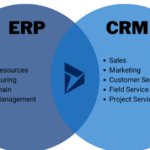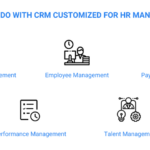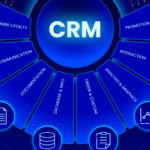How a CRM Benefits a Business
A CRM business usually starts with a need. Often business owners are using tools they have purchased and find that the features they really need are not included in their CRM and the features they can access aren’t relevant to their business. Typically the end result of those frustrations is a CRM system that has additional features that contribute to the success of a business.
CRMs benefit a business most when they are set up to work for that business and how it already operates. A business based predominantly on sales and leads wouldn’t need the same features as a service based company sending technicians out in the field. With many different options, it can be overwhelming to dig into how a CRM can help your business best.

Choosing the right CRM benefits for your business is essential to success
Every CRM business has created a unique and specialized type of CRM for the industry they are most familiar with. While some CRM systems are designed with benefits for a specific business in mind, all CRM systems have the basic functionality to benefit all businesses in a big way.
Careful selection of a CRM that is right for your business also includes evaluating features against cost. Many CRM businesses offer several different packages. Each package usually offers additional features. It’s important for a business to consider what features it really needs. Having too many features available may look overwhelming to employees trying to learn their way around the new online system.
A CRM business usually builds its software with functionality in mind
The number one thing that stops a CRM system from working effectively is compliance. Often employees are set in their ways and have learned that if they don’t use and don’t like the new way, things won’t have to change. The key to changing this is not all about the mindset of the field technicians.
Managers and business owners that choose to actively think about how their team members go about their day see less turnover and better employee morale. Since employees will be logging their time, filling out reports, and using the applications and CRM system most often, it’s important to weigh how they feel about the system and how it works into their day more heavily than any other factor.
A good CRM system will have a user friendly design that keeps tasks completed most frequently easily accessible. A CRM with an interface that allows technicians and other staff to quickly find what they are looking for helps create motivation to stay on top of using it. When employees start to see the value in using the new system, a business will begin to see the difference in customer service, effectiveness and profits.
3 ways a CRM benefits the bottom line of a business
Different types of CRM systems will have different benefits for a business. While each one is different, CRM systems all share some basic ways in which they can help a company increase their bottom line. Understanding that all aspects of the business impact customer satisfaction and ultimately profits is a good place to start.
Increased efficiency from a CRM system increases client satisfaction.
When customers are expecting a service or product, the company they put trust in has one chance to deliver. Mishaps, miscommunication and mistakes happen but they do impact the way a customer views a business. With a CRM system, those small things are less likely to fall through the cracks.
In a cloud-based CRM every employee has access from anywhere. Customer communication is logged in the CRM database and available for all team members to see. When someone new answers the phone and already knows exactly what the customer is referring to based on past notes, it gives the customer added confidence that their needs matter.
An online CRM system streamlines processes.
A business with an online CRM can keep track of inventory, day to day operations and progress automatically. CRM systems are more than just client relationship management tools. They also help business owners and managers manage team members, projects and timelines.
Seeing which employees are where and what inventory they left with is helpful for managers that control inventory and fleet. Operations managers may find more value in the progress reports and time tracking features. Business owners often enjoy the luxury of tapping the screen on their smart phone and seeing how the work day is progressing.
Customizable reporting available in a CRM changes the focus of managers.
Having the ability to customize a report to include only the information required decreases the amount of time employees spending updating on progress and allows managers to get the full picture with a quick glance instead of an on site visit.
Reports can include pictures, time stamps and communication logs that help managers stay in the loop without having to call every foreman or technician to get an update. Time spent chasing down employees and finding out what has been completed turns into investments in client relationships. Managers are able to take the time to understand a customer’s needs and develop strategies to meet them.
The ways in which a CRM benefits a business are limitless
When correctly implemented, CRM systems touch every part of a business. The automated features help free up time and impress customers while the reporting features hold employees accountable and help managers stay on top of what’s happening in the field. Data on how long service calls take and which products aren’t selling can also be tracked in a CRM to help owners make more informed decisions for their business. How a CRM benefits a company largely depends on how the company chooses to use the system, but with the right features and implementation the possibilities for growth are immense.
See how a CRM benefits your business with a free trial from CRM Runner. CRM Runner is a client relationship management system designed with flexibility in mind. Customizable reports and GPS tracking are some of the unique features it boats. Click here to learn more and sign up risk free to see if CRM Runner is the system for your team.






0 Comments